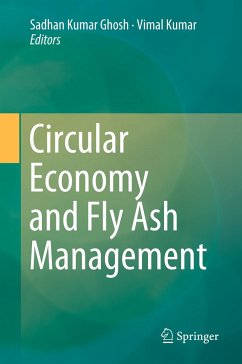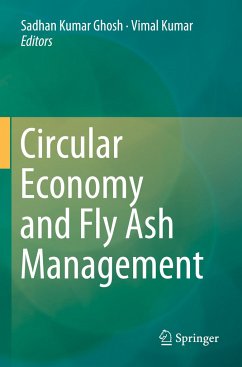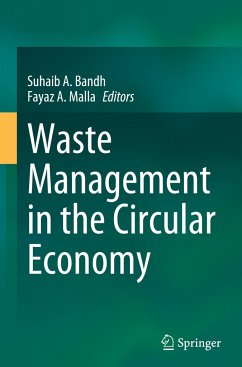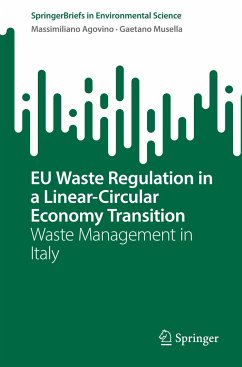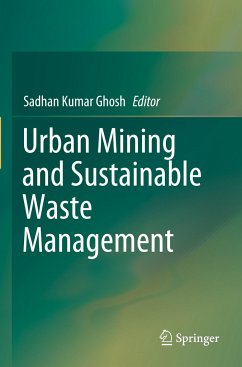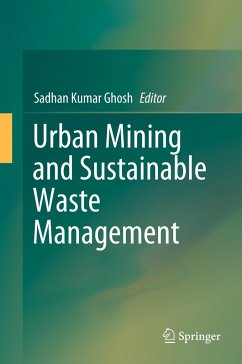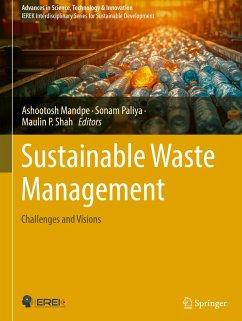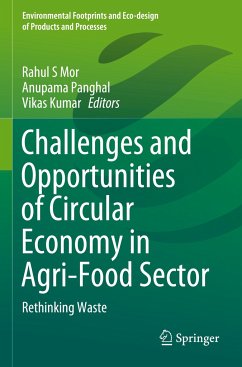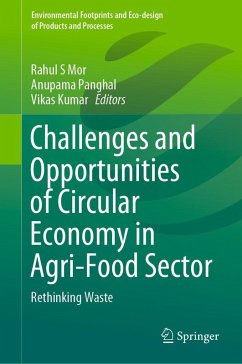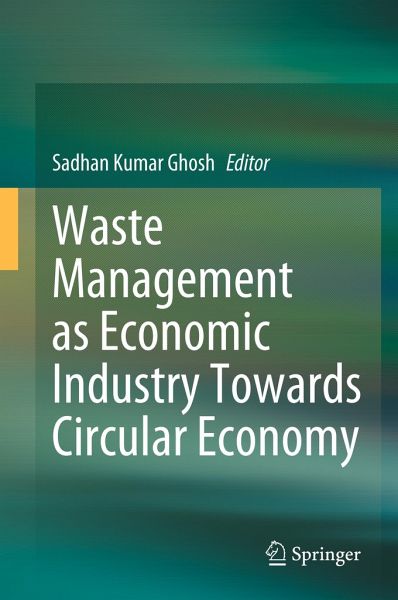
Waste Management as Economic Industry Towards Circular Economy

PAYBACK Punkte
49 °P sammeln!
This book highlights the latest advances in waste management, resource recovery and resource circulation in various countries, with a special emphasis on India. It leads the way towards a sustainable circular economy developing local economy and enhances the sustainability of the energy sector as a whole by holistically addressing waste management.Waste management is a major problem around the globe; effective waste disposal is one of the most plaguing issues faced by municipalities. Yet waste can also serve as a major source of energy rather than a disposable material. The book discusses vari...
This book highlights the latest advances in waste management, resource recovery and resource circulation in various countries, with a special emphasis on India. It leads the way towards a sustainable circular economy developing local economy and enhances the sustainability of the energy sector as a whole by holistically addressing waste management.
Waste management is a major problem around the globe; effective waste disposal is one of the most plaguing issues faced by municipalities. Yet waste can also serve as a major source of energy rather than a disposable material. The book discusses various upstream and downstream aspects of waste management systems, e.g. conversion processes and collection methods, that are needed in order to make waste management systems into an effective industry and move closer to a circular economy. It also provides information on management tools for analysis and decision support. All chapters included here are based on high-quality research papers presented at the conference IconSWM 2018.
Waste management is a major problem around the globe; effective waste disposal is one of the most plaguing issues faced by municipalities. Yet waste can also serve as a major source of energy rather than a disposable material. The book discusses various upstream and downstream aspects of waste management systems, e.g. conversion processes and collection methods, that are needed in order to make waste management systems into an effective industry and move closer to a circular economy. It also provides information on management tools for analysis and decision support. All chapters included here are based on high-quality research papers presented at the conference IconSWM 2018.





